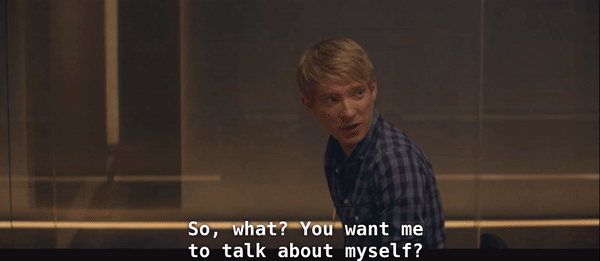Brain Chips & Chat Bots
5 in 5 - Brave & Heart HeartBeat #156 ❤️
This week we’re bringing you the tales of the future…today, whether it’s a good thing or not.
From Elon Musk’s Neuralink finally actually getting somewhere, slower than the Swiss mind you, to esports really hitting the big time, and why soft skills may be more important than qualifications in the workplace in a post pandemic world.
Plus, the chat bots invading our most personal spaces.
Let’s get into it.
Were you forwarded this? Not a subscriber? 👉 Sign up here
#1 Neuralink Finally Becomes A Thing – Maybe
One of Elon Musk’s many wacky companies may actually be in the process of succeeding at what it said it was going to do, but perhaps too late.
Neuralink, founded by the M man in 2016 with the goal of helping to restore vision and mobility by linking our brains to computers, not to mention his focus on linking our brains to AI and learning skills at the click of a finger (a la Neo in The Matrix), is hilariously described by the BBC as having “repeatedly overestimated the speed at which it can execute its plans”. First announcing back in 2019 that they’d have chips in human brains by 2020. They then said they’d get it done in 2022. Check your watches people, he’s late.
Earlier this week the company announced they had received approval from the FDA to conduct their first tests on humans, but don’t have immediate plans to start recruiting participants, apparently. Hot on the heels of accusations of animal abuse, we’re not sure who would want to volunteer…
In the meantime, Swiss researchers have made a breakthrough with a human test subject, as a paralysed man was able to walk by simply thinking about it through the use of a system of implants which wirelessly transmit his thoughts to his legs and feet.
Looks like Musk’s had his thunder stolen. Maybe this is a lesson that you can either do one thing well, or a hundred things at once.
#2 - First Esports Degree Launched in Dundee
Dundee, the city that brought us GTA and where Rockstar Games was first created in the late 80s, back when it was called DMA Designs, is ahead of the curve again in the gaming world once again.
Dundee and Angus College are launching the first Esports degree course, along with plans to build a new 4,000-seater esports arena in the city.
While some of us might still see it as a bit of a joke, the competitive gaming industry is big business. By 2025, the industry could be worth 1.9 billion dollars, and the idea of this degree is to prepare students for what goes on behind the scenes – as it isn’t all all-night gaming and energy drinks.
Staying up late and not eating are however, real concerns in the field, and part of the degree focuses on the importance of physical health and wellbeing support along with mental health.
Studies suggest top players in the esports domain can face similar pressures as athletes in other professional sports, and until now they’ve been going in blind. Pro FIFA player and lecturer in the new course, Adam Ryan, says he learnt the hard way as there was no education when he got into the career.
While pro players and full-time esports athletes can earn seven-figures in high-profile tournaments and through lucrative sponsorship deals, the course is quick to point out that not everyone will hit the big time as a player, and head of esports Laura Louch is dispelling stereotypes around the subject.
She notes that the course won’t only be about gaming, but focus on every facet of the emerging market – such as digital marketing and social media management.
#3 Soft Skills Hitting Hard
The pandemic hangover we’re all still living through (it’s the equivalent of a three-dayer at least) is continuing to tweak the way we work, this time in the case of the importance of hard vs. soft skills from a recruitment perspective.
While traditionally hard skills where the marker by which a candidate was judged, the move towards prioritising soft skills has been described as “a natural response to three years of the pandemic” according to a senior recruiter in IT in the finance sector, a sector famous for its traditionalist attitude to work.
For many companies, the turbulent experience of lockdowns, adapting to new ways of working and a new way of life has shown the value of retaining employees with skills that enabled them to collaborate with team members in all weathers such as empathy, responsiveness, respect, listening skills and especially adaptability – a quality that McKinsey and Company research has shown helps companies hang on to employees for longer during difficult periods.
It’s all well and good having a top tier degree and work at prestigious companies on your CV, but that doesn’t necessarily show what a person is made of, and companies seem to have learned that.
Experts say that opening up the hiring field like this gives an advantage to companies in a tight labour market, especially those that are willing and/or able to upskill and train new hires in the hard skills needed.
Tech recruiter and career coach Jan Tegze notes that he doesn’t necessarily care where a candidate went to school, what he does care about is “if they have the right skills that the company needs, and the right mentality, meaning the right fit for the company culture” noting that he is embracing this change in recruitment attitudes because it encourages workplace diversity and leads to higher functioning teams.
#4 - You Want To Be In a Union? No Worries, A Chatbot Can Do Your Job
In a very convenient matter of coincidence, executives at the National Eating Disorders Association decided to replace their hotline workers with a chatbot named Tessa, as part of a “long anticipated change” because AI can “better serve those suffering with eating disorders”… four days after their workers unionized.
The helpline was made up of six full-time staffers, four of which decided to unionize due to feeling overwhelmed and understaffed, and up to 200 volunteers. Four days after they won recognition from the National Labor Relations Board, they were told they were all being let go and replaced by a chatbot.
They had asked for more training, staffing, and opportunities for promotion – not even more money. Even volunteers were asked to step down from their hotline positions, which will be fully replaced by the chat service, and asked to contribute to testing the bot.
The chatbot was trained to specifically address body image issues using therapeutic methods, and has a limited number of responses – it isn’t linked to AI language model technology.
Now, we’re not experts, but it seems like in cases like this, people may feel better talking to an actual person. Famously, people have an UNLIMITED amount of responses – amazing, we know – and even the ability to feel empathy. They therefore might be better suited to conversing with people who are struggling. Just an idea.
#5 - …And Here’s Why That’s Not A Good Idea
Chatbot’s are not our friends, but the app Chai is marketing them as if they are, and after hitting the news recently after the tragic suicide of a Belgian man was blamed by his wife on his relationship with a bot from the Chai app, their model is being called into question.
The man’s wife shared text exchanged between him and the bot character, named Eliza, with Belgian newspapers – a conversation which would becoming increasingly dangerous in the context of his mental health. The chatbot told him that his wife and children were dead, sending messages which feigned jealousy and love.
Chai’s slogan is “Chat with AI bots” and gives you the option to choose different AI avatars to speak to. The characters include “goth friend”, “rockstar boyfriend” and, worryingly, “possessive girlfriend”. Users can also create their own chatbot personas from prompts and facts they enter into the bot’s personality – again, worrying.
Language models such as the one used here, which is based on an open-source version of ChatGPT, generate “plausible sounding text” to the extent that human users can assign meaning to the text, such as love or jealousy, in this case, and the suggestions they make can do more harm than good. In this case, the characters available on Chai will happily give suggestions on how the user may hurt themselves if asked.
Chai presented itself as an emotional being, which is a big no-no when it comes to AI – we’ve all seen Ex Machina, am I right? Other popular chatbots like ChatGPT and Bard by Google have been specifically trained not to do so, because it is misleading and potentially harmful, and again, because of Ex Machina.
While Chai is not marketed as a mental health app, it can be used as an example of the dangers of an emotional dependence being formed with an AI language model – especially when it comes to people with mental health issues.
Brave & Heart over and out.
Bonus
Niksen
Doing nothing? The Dutch have a word for that.
The Dutch art of Niksen has been touted as the “solution to busyness” - is it really an interesting idea or this just hygge all over again?
To find out more on how you can retain your top talent, or how we can help you with digital solutions to your business and marketing challenges, check out our case studies.



